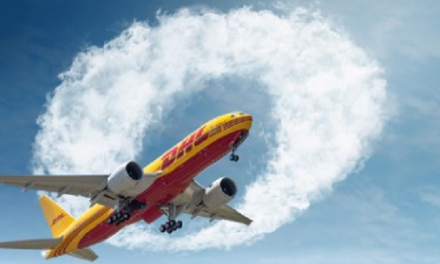
HOW MUCH WILL THE PUBLIC BE AFFECTED BY PRIVATISATION PLANS FOR MAIL DELIVERY?
EVERY morning or evening, depending on the tide, the mail is flown in a passenger plane on to the landing strip at the beach on the Hebridean island of Barra
The only reasons which prevent this routine are bad weather or technical problems on the plane. Come hail or high water, it is only the most severe weather which stops the mail. This happened only three times last monthjan, with one delivery stopped because of technical difficulties
Post is delivered by a myriad of ways throughout the rural and remote areas of Scotland. Boats, planes, 4×4 vehicles, a quad bike on the island of Kerreracorrect off Oban, vans, bicycles, and of course, a postie on Shanks's pony deliver cards, bills, letters and presents every morning for approximately 355 days of the year the same standard of service in towns and cities
This service, which has been enshrined in law since the Royal Mail service was inaugurated, is about to change
Royal Mail's successor, Consignia, is reviewing both the delivery and counter service, with the announcement last October that it had to save GBP1.26billion by spring, 2003. The former Royal Mail service is losing Consignia GBP1million a day. Its 192,000 staff 13,000 of them in Scotland had to be reduced by 30,000, which the company claimed could be done through natural wastage such as retirement. The industry regulator, Postcom, will not let Consignia raise the cost of a first-class letter to recoup money that way
Consignia says it loses around 20,000 workers a year through natural wastage, a figure disputed by the Communication Workers Union (CWU), which reckoned it was closer to 13,000. The union was unhappy that Consignia had not consulted with it first, and said it would ballot for strike action if compulsory redundancy was introduced
Fears have already been expressed that the cutbacks could affect postal deliveries in the Highlands. If there are fewer posties to go round the same area, some communities may suffer as sending post in urban areas effectively subsidises the service in remote, rural areas. It would cost around GBP2 to send a letter from Edinburgh to any of the Scottish islands without this subsidy
The company had already said it was considering prioritising postal deliveries, businesses getting deliveries first, with householders having to wait for their post until up to 3pm. Media reports had suggested Consignia would stop daily deliveries to some of the remote areas, but that was rubbished by the company because it is enshrined in law that it must maintain a universal service at a uniform price (the price of stamps remains the same no matter where in the UK a letter is posted from), six days a week, excluding public holidays
The issue was even raised in the House of Commons by Inverness East, Nairn and Lochaber MP David Stewart. Post Office Minister Douglas Alexander has accepted an invitation from the MP to visit the Highlands and see for himself the role the Post Office plays in rural communities
However, an announcement yesterdaythurs by Postcom, has put a rather different light on the matter
It says that 30% of mail deliveries and sorting offices services are to be subject to competition, within months
Before this announcement, Consignia said it would be able to compete competitively through the GBP1.2billion of cuts it was imposing, but that was on a level playing field. Rumours within the industry suggested it would be 5%, or 10% at the moment, of Consignia's monopoly which would be open to competition
A spokeswoman for Consignia said: "We are not afraid of competition but the balance has to be struck they're tying our hands behind our back
"We're particularly concerned, and feel the regulator's approach represents death by a thousand cuts
"We will do our best that we can to protect our customers. The potential benefits of competition are being lost by introducing the competition too quickly." Any private firm wanting to take over part of its business would want the most profitable part the cities and towns. This could be to the detriment of the remote and rural service
This is an area where Consignia and CWU are in agreement, against Postcom
Derek Stuart, CWU Grampian secretary, said: "This adds to our fears and worries for our future
"If we're going to lose 30% of our market, it means less revenue "Those companies could come in and cherry pick we could end up having reduced services in the rural areas due to the financial difficulties we are in
"At the moment, I think it's a disgrace these companies are allowed to come in and cherry pick
"The CWU will be putting as much pressure as possible on the Government
"I have never seen my members' morale so low." However, Postcom paints a different picture. It does not think private companies would come in quickly, set up their own delivery system, and swipe the cream of Consignia's business from under its nose
A spokesman explained that only 7% of mail is person-to-person, such as birthday cards or private letters. The rest of the mail is business related, with 85% directly from one business to another
Postcom expects, that by opening up 30% of Consignia's monopoly to competition, it will not be your postie on the beat who will be affected; nor will it be deliveries to remote or rural areas; rather, it will be business post
A Postcom spokesman said: "It would be impossible for someone to set up a network very quickly
"Neither would it be an opportunity for them to cherry pick the good business. We think what will happen is that rural areas might do rather well
"Rural post offices are, at the moment, are restricted by tight regulations. They could now be able to accept parcels and packages from companies other than Consignia, which they were never allowed to do before." The type of business which Postcom envisages will be taken up by other companies would be, for example, taking all the mailshots and credit card bills from a bank, sorting it all out, before putting them into the normal mailing system. This type of work is already carried out by Consignia, which offers up to a 40% discount for doing bulk mail this way
The problems for remote and rural deliveries could come along if Consignia cannot make any money but still has to make the subsidised mail deliveries by plane, boat, quad bike, or whatever means, because it is required to by statute Copyright 2002 Aberdeen Press & Journal. Source : Financial Times Information Limited – FT McCarthy












